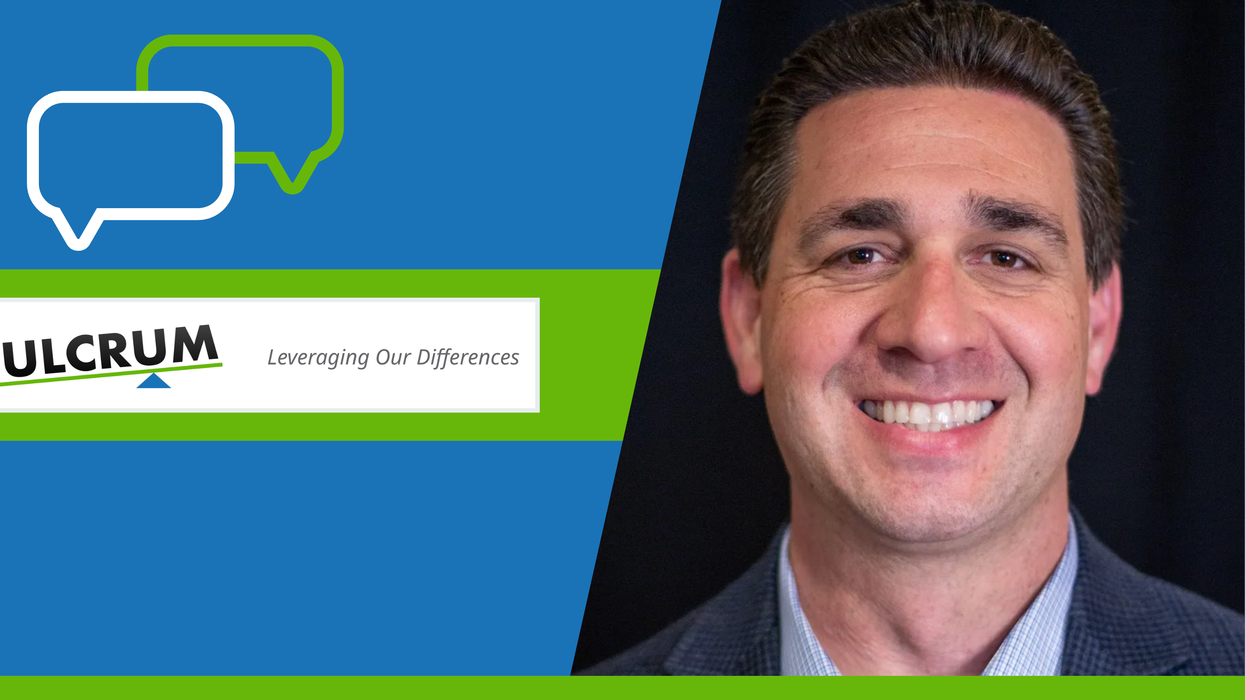Meyers was the founding publisher and executive editor of The Fulcrum.
Four years ago, I helped launch The Fulcrum because American democracy deserved more than it was getting from the media. The world of political journalism (to which I had belonged for more than 20 years) was heavily focused on winners and losers, and to a lesser extent on policy making. But there was little, if any, coverage of how the system works (or, rather, doesn’t) and how it could be improved.
So when Issue One’s Nick Penniman explained to me his vision for a platform designed to cover efforts to improve the political system – to serve both as a trade publication and an amplifier for the work being done by the 100-plus organizations working on political reform and reducing polarization – I eagerly took on the challenge of building what would become The Fulcrum.
On Dec. 31, I completed my run at The Fulcrum. There are people to thank and stories to celebrate, but here I want to share what I’ve learned.
Our initial mission statement included this passage:
While rooting for our democratic institutions to get stronger, we have no rooting interest in any of the prescriptions out there. Our journalistic role is to help you by bringing a clear and unbiased eye to the debates.
As I would often put it in my elevator pitch, we believe the system can get better and we’re going to explain how that can happen without advocating for specific reforms. And while I still believe that was the right journalistic approach, I also have a realist’s appreciation for which ideas have the best chance to succeed. That’s why the very first piece we published, authored by David Hawkings, made clear that the Democrats’ signature bill, the For the People Act, was not going to become law as long as Republicans retained the power to block legislation in the Senate. And despite various iterations and efforts at compromise, that prediction held true.
But the ideas contained in that bill would drive our coverage: voting rights, redistricting, election security, government ethics, campaign finance reform and more. And some reform ideas that showed momentum received more and more favorable coverage in The Fulcrum – ideas like ranked-choice voting, open primaries, independent redistricting commissions and eliminating “dark money.” Regardless of one’s partisan preferences, it’s hard to be cynical of ideas that bring more people into the political process – unless your goal is retaining power rather than embracing representative democracy.
And then came the Covid-19 pandemic, the 2020 presidential election, and the Jan. 6, 2021 attack on the Capitol – the preeminent symbol of our democracy.
Each of those events had profound effects on how states manage elections, with legislatures considering thousands of bills changing the rules covering voter registration, voter ID requirements, campaign funding, early voting and so much more. According to the Voting Rights Lab’s legislative trackers, state lawmakers introduced more than 4,000 bills in 2021 and 2023 that could have changed election laws. Nearly 400 of them were enacted.
I’m grateful for the work of the many organizations that helped keep track of state-by-state activity. Without tools like the VRL’s bill tracker, research from organizations such as the National Conference of State Legislatures and the on-the-ground reporting by local reporters, we would never have been able to publish important work like our “ Election Evolution ” series providing comprehensive coverage of election law changes in every state.
The raw numbers tell one story, but the state-by-state breakdown shows how the partisan divide has affected civic engagement. In most cases, blue states took steps to make it easier to vote while red states tightened the rules.
And yet, there have been a few (OK, very few) examples of how the parties can work together. I often point to Kentucky as a model for bipartisan compromise on democracy reform. While the state regularly supports Republican presidential candidates and has a GOP-dominated legislature, the voters elected Democrat Andy Beshear governor in 2019.
Rather than battling each other to a standstill on every issue, Beshear and Republican lawmakers found some common ground in 2021, agreeing on a law that both made it easier for people to vote and created new safeguards to ensure election integrity.
I’m thankful to the Bridge Alliance Education Fund, and specifically its leaders David Nevins and Debilyn Molineaux, who offered to keep The Fulcrum alive when we faced severe funding challenges in 2021. Their leadership and focus on expanding our coverage to better embrace the anti-polarization movement pushed me to widen my vision from structural reforms to the personal side of democracy.
It’s not enough to advocate for this reform or that one if the only people listening are those who already agree. We, the people, need to be able to talk – not scream – across the aisle. The question becomes, how do advocates for civil discourse mobilize enough people to make a difference. Nearly 40 Bridge Alliance member organizations – groups like the Civic Health Project, Convergence and Living Room Conversations – are working alongside others to achieve a critical mass. They introduced me to projects like America Talks, the National Day of Dialogue and the National Week of Conversation, efforts to foster conversations to break down the partisan barriers that have made the United States a country divided.
My time with The Fulcrum has ended (although my byline may still appear at times). But the work we have done here has changed me, opening my eyes to all that has been – and has yet to be – done to strengthen our nation. Our democracy depends on each of us to do better.
The Fulcrum’s original tagline was “News. Community. Debate. Levers for better democracy.” Let’s all keep working those levers together.




















